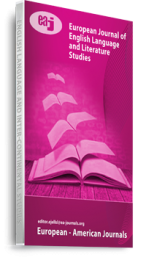This report tends to focus on human-animal relationship by discussing how subversively the protagonist, David Lurie’s attitude toward animals changes, and how his attitude reflects life and ecological philosophy in Disgrace, which presents the chaos and complicated phenomena in South Africa society involving male-female, father-daughter, white-black, city-country, and human-animal relationship. Referring to life philosophy, there is no option but submission in living beings’ route to death. In other words, there is no apparent difference between the existence of animals and human beings especially when facing formidable or unavoidable external forces. Through writing materials concerning animals as creatures abjectly suffering from pain, captivity and death at the hands of humans, Coetzee provides readers space to imagine how animal beings might feel at the moment of torture instead of delectation. However, transition of David’s attitude toward animals from indifference to solicitude, and from solicitude to euthanasia elucidates how animal living and dying could be looked upon in human society and logic of ethic.
Keywords: Disgrace, Eco-criticism, Ethic, J.M. Coetzee, Philosophy, Sympathy

